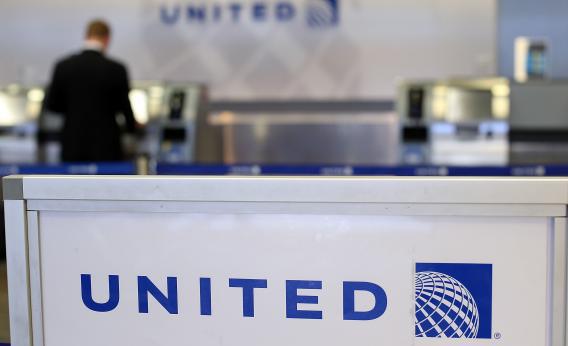As the Olympics wrapped up on Sunday, United Airlines’ public relations team stood ready to capitalize on the good feelings with some nifty promotions on Facebook and Twitter. Its “Proud to Fly” challenge quizzed Facebook followers on their Olympics knowledge and encouraged them to share their score with friends. And for U.S. athletes returning home to O’Hare Airport, it had ready a water cannon salute, which it photographed and posted on Twitter.
After U.S. Olympic swimmer Matt Grevers tweeted his thanks to the airline and posted a picture of himself with a medal around his neck and his arms around a United flight crew, United’s social media staff must have been flying high. Then it ran into some turbulence.
Bob Sutton, a Stanford professor who writes about management and organizations, related on his blog on Monday a tale of appalling customer service. Friends of his had sent their 10-year-old daughter unaccompanied on United to summer camp, assured by the airline that it would take good care of her. Instead, the girl missed her connection in Chicago—apparently because the airline employees who were supposed to help her failed to show up.
When the girl asked for help from other employees, they allegedly told her several times that they were too busy. And the parents only found out about it hours later, when the summer camp called to say their daughter had never arrived. When they called United, they were put on hold for 40 minutes, then told that the whole situation was no big deal. The girl eventually turned up, but it was only after the parents contacted a local TV station that United got serious about apologizing and addressing their concerns, according to Sutton.
Sutton’s blog post struck a chord on Twitter and Facebook. As it circulated, others began to add their own tales of United malfeasance, real or perceived. And United’s own Facebook page and Twitter feed became ground zero for the outpouring of rage.
“Parents, NEVER ever let your unescorted child travel on @United,” wrote Twitter user @viviane212. “Wow, hey folks when you want to get rid of your children, just put them on on a@United Airlines flight! #waytogo #FAIL,” tweeted @madmelvina.
If the airline’s Twitter feed was the target of a string of barbed one-liners, its Facebook page became more like a group-therapy session for victims of United’s allegedly uncaring customer service. One user wrote, “I called the special needs desk about getting a flight for my disabled daughter and was talked to rudely and at one point the woman outright insulted my parenting!!” Another noticed that United was responding to the complaints not by addressing them, but by deleting them from its page.
But the biggest insult, from her point of view, was that the airline’s social media team kept trying to milk its Olympics promotions. “Do not even begin to consider posting any adverse comments on United Airlines FB (page)! They just delete them and post purile (sic) advertising gimmicks,” she wrote. (Even that comment appears to have been scrubbed from the page.) Angry Facebook users resorted to posting their grievances on unrelated posts in United’s timeline, so that even its “Proud to Fly” quiz became a forum for anger.
On Tuesday, the airline finally responded directly, posting an apology on Facebook and linking to one on Twitter. It also responded to press inquiries by saying it was taking the matter seriously and looking into what went wrong. That didn’t satisfy everyone, but it seemed to quell the storm at last. Today, for the first time, the airline is once again getting some positive responses to its posts on Facebook.
Social media is hard for companies to do well. It’s always an uphill battle for “engagement” from followers. But United’s debacle shows that once the ball gets rolling in the wrong direction, it can be hard to stop. And ignoring bad press, even if it originates from a single blogger relating something that happened to his friends months ago, is a surefire way to make it worse.
